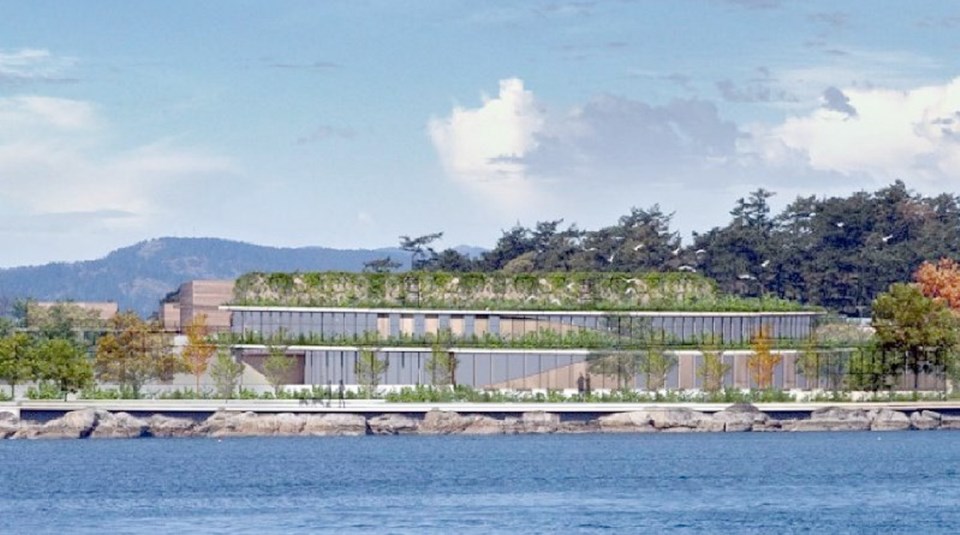Esquimalt councillors, who have yet to see the detailed proposal for a sewage-treatment plant at McLoughlin Point, say they don’t know what to expect from the process to rezone the site.
Concerns were raised this week at the Capital Regional District board table about the necessity of rezoning, a move previously rejected by Esquimalt.
View Royal Mayor David Screech said he thought one of the strengths of the McLoughlin Point site was the fact the zoning was in place and he worried about the uncertainty created by again going through a rezoning process.
But Esquimalt Coun. Meagan Brame said Thursday the region should take a deep breath, noting the rezoning is part of a normal process.
“We can’t ever look at a project and say this automatically is going to be done,” she said. “We always have to look at the details. Up to this point, we as a council haven’t been given the plan.”
Brame noted that the rezoning is being initiated by the township, and Esquimalt staff are working with the sewage-treatment project team to develop a proposal Esquimalt can best support.
“If they come back and there’s things of serious concern, then of course we’re going to question it,” she said. “But at this point we’re leading the rezoning to help make the process run smoother and faster.”
Project board chairwoman Jane Bird said it became clear through a line-by-line examination of the existing zoning that a rezoning would be the best way to bring the project and the zoning into alignment.
She said Esquimalt staff have been working co-operatively, and Esquimalt council has already agreed to a timetable for the rezoning process.
That’s in stark contrast to the last time the possibility of a treatment plant at McLoughlin came before Esquimalt council.
In 2014, the Esquimalt councillors unanimously rejected zoning variances at McLoughlin that would have permitted a regional sewage treatment plant. At those public hearings, hundreds of people showed up over several days to voice their opinion on everything from the need for sewage treatment to tsunami risk.
Brame said she couldn’t predict whether this rezoning would spark another marathon public hearing.
“I don’t know what our residents will do,” she said. “I think in a lot of cases people are hopeful as well that this is going to be a better project.”
Esquimalt Coun. Tim Morrison said the McLoughlin rezoning is no different from any other, and that it is not one of his priorities.
“I’m just quite disgusted with how the CRD steered this process away from the east-side, west-side public process that we had agreed to,” Morrison said. “Quite frankly, at this point it seems to me that nobody cares about public process anymore.”
Acting Mayor Lynda Hundleby said she’s interested in hearing from the public on the proposal, and would make no predictions about the outcome.
Brame said Esquimalt council only wants what’s best for the region. “Our push backs have actually reaped a lot of benefits that people have forgotten about. We now have a project that’s supposed to be better than the previous project. We’ve got costs lower than the previous project.”
Oak Bay Mayor Nils Jensen, a proponent of the McLoughlin site, agrees with Screech that the prospect of a rezoning creates a degree of uncertainty.
“I am concerned, but not alarmed. The council in Esquimalt will have to listen to all the facts and make their decision accordingly,” Jensen said.
“What’s now on the line is the clear indication that if this project as suggested by the board or a tweaked version doesn’t go ahead, the region will be on the hook for $500 million [in senior government grants]. And that’s a lot of money.”



